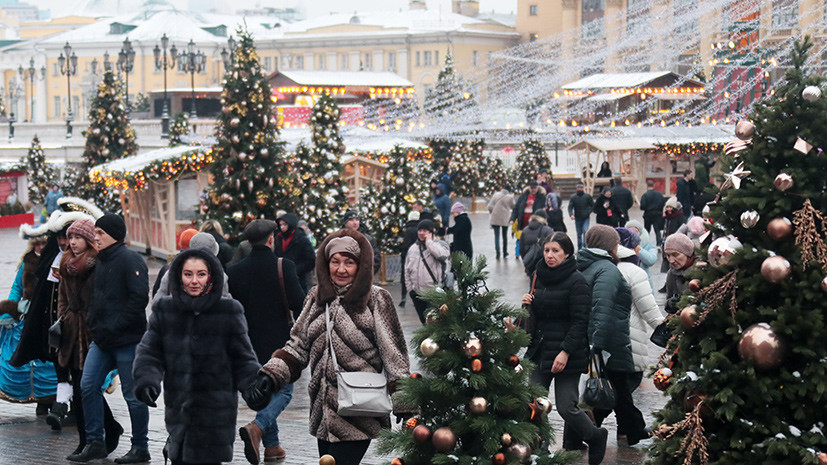Before the ten-day New Year holidays, Russians are waiting for six working days in a row, Rostrud recalled.
“The six-day working week expects Russians at the end of the year. Then come the ten-day New Year holidays, which will last from December 30 to January 8, ”TASS quotes the words of the deputy head of the Rostrud, Ivan Shklovts.
The ministry explained that working on the last week of 2018 would be a day longer because of the weekend's shift from Saturday, December 29, to Monday, December 31. According to Shklovets, this was done in order “not to interrupt the holidays”.
The first working day for the majority of Russians will come on January 9, noted in Rostrud. With this in mind, the first working week of 2019 will last only three days - the next weekend will begin on January 12th.
Recall that the past official New Year's holidays at the Russians also lasted 10 days - from December 30, 2017 to January 8, 2018.
To gallery page
Premiums - at the discretion of the employer
Earlier, Rostrud also spoke about the procedure for paying premiums on the eve of the New Year.
"The prize as a stimulating payment is one of the components of wages, which is aimed solely at encouraging workers to improve the quality of work and productivity," said Rostrud.
The ministry noted that the payment of the premium "depends on how much the employer is interested in it, and on the economic condition of the employer."
The accrual of the premium, its size and payment procedure is the prerogative of the employer, but if the bonus system was initially introduced in the organization, the manager must follow the approved rules. Violators may be held administratively liable.
In addition, there are no mandatory requirements for the accrual of a premium before the New Year. In Rostrud explained that the incentive payments should be charged after the evaluation of indicators and can be paid in any agreed period.
If the employer fails to comply with the mandatory standards, “the necessary measures of the inspectors' response will be taken,” said in Rostrud.
247 working days and 118 days off
The production calendar for 2019 was approved by the government in October. Next year, 247 working days (six of them are shortened) and 118 days off (including 14 holidays) are waiting for Russians.
After the New Year holidays, the longest period of rest will fall on the May holidays - from May 1 to 5, inclusive. The second long weekend will fall on Victory Day (May 9–12 inclusive).
It is noteworthy that in 2019, February 23 falls on a non-working day (Saturday), therefore, in accordance with the resolution, the day off will be postponed to May 10, and in February the Russians will rest only two days - 23 and 24. February 22 will be shortened in the afternoon
Two pairs of long weekends — three days each — are waiting for the Russians in March (8-10) and in November (2-4).
Too many holidays
A year earlier, State Duma deputies in the first reading rejected two bills, which proposed reducing the number of non-working holidays in Russia. Immediately two similar initiatives for the consideration of Parliament were made by deputies of the LDPR and the Communist Party of the Russian Federation.
In the initiative of the Communist Party of the Russian Federation it was proposed to reduce the number of public holidays prescribed in the Labor Code (Labor Code) and redistribute them. New Year's holidays were recommended to be reduced to four days - from December 31 to January 3, and Christmas should be celebrated separately, on January 7.
The parliamentarians explained that the innovations proposed by them would allow "citizens to calmly prepare for the celebration of the New Year, without the hassle and cost of working time." Recall that in the current norms of the Labor Code, December 31 is not a holiday.
In addition, we are talking about economic reasons. The Communist Party noted that they receive complaints from citizens who at the beginning of the new year are left without a salary and would prefer to work.
In the LDPR bill, there were tougher proposals. The deputies of this faction proposed to limit the number of non-working holidays to three dates: January 1 - New Year, May 9 - Victory Day and June 12 - Russia Day.
The parliamentarians explained that the long New Year holidays do not always coincide with the desire of the workers to rest in the winter and lead to various negative consequences.
“Such long weekends have a bad effect on the well-being of citizens, leading to various negative situations: overeating and alcohol abuse most often occur during these long New Year holidays,” the Liberal Democratic Party said.
Both initiatives have not received approval of the State Duma.

